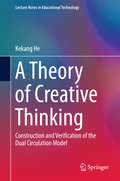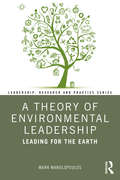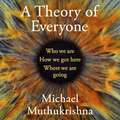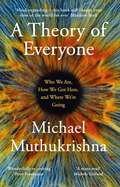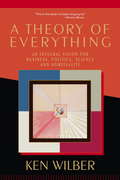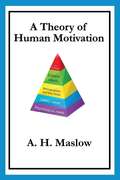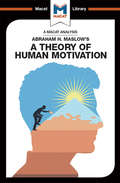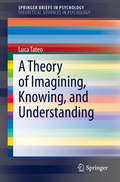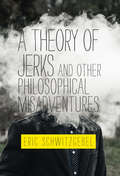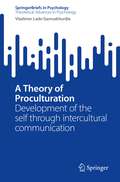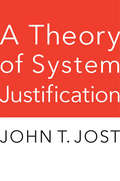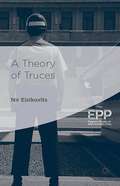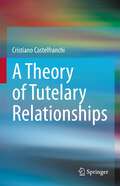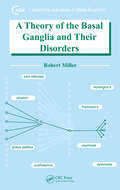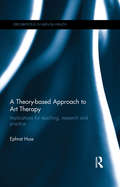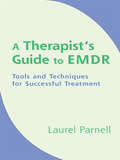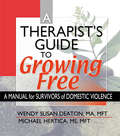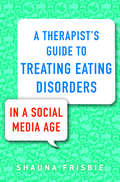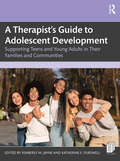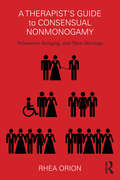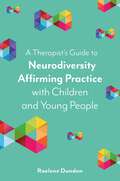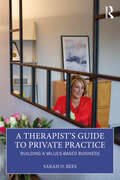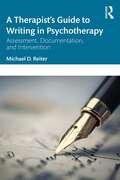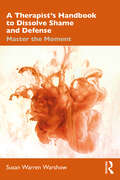- Table View
- List View
A Theory of Creative Thinking: Construction and Verification of the Dual Circulation Model (Lecture Notes in Educational Technology)
by Kekang HeThis book examines research on creative thinking, both current and historical. It explores two dimensions of human thought (time and space) and two modes of thinking (conscious and unconscious) as well as both left and right brain functions and artistic and scientific creative activities. The book proposes a "Double Circulation" model of creative thinking and argues that imagery thinking, intuitive thinking and logical thinking are main parts of creative thinking and that dialectical thinking and horizontal-vertical thinking are the guides for highly complex problem-solving thoughts and strategies. The book focuses on education and psychology and also covers how to use ICT to promote students' creative thinking skills. Researchers will benefit from the "Double Circulation" model, which provides a new perspective on conducting creative thinking research. The book is also a valuable resource for graduate students in the fields of educational technology and psychology and for all readers who are interested in creative thinking.
A Theory of Environmental Leadership: Leading for the Earth (Leadership: Research and Practice)
by Mark ManolopoulosIn A Theory of Environmental Leadership, Mark Manolopoulos draws on his original model of leading outlined in his cutting-edge book Following Reason to derive and develop the first properly systematic model of eco-leadership. Suppose humanity’s relation with the Earth may be described in terms of leadership "stages" or modalities: once upon a time, the Earth led or ruled humanity, and now we humans rule or lead the Earth. When the Earth led, the Earth flourished; now that humankind leads, the Earth flounders - ecological crises multiply and intensify. However, there might be a third stage or modality of leadership: humanity leading for the Earth, leading in a way that allows the world, including humans, to re-flourish. What would be the nature of this truly environmental form of leadership? A Theory of Environmental Leadership identifies and critically analyzes the two basic and incompatible positions associated with the way we construe and interact with the non-human: anthropocentrism (human supremacism) and ecocentrism (ecological egalitarianism). By rigorously analyzing and leveraging this polarity, this book outlines an innovative theory of eco-leadership together with some of its confronting-but-necessary measures. Expansive and incredibly timely, A Theory of Environmental Leadership is ideal for a range of audiences, from scholars and students of environmental leadership studies to activists and policymakers. The book’s remarkable clarity and engaging character also makes it suitable for the general public.
A Theory of Everyone: Who We Are, How We Got Here, and Where We’re Going
by Michael MuthukrishnaA blueprint for a better future.Playing on the phrase "a theory of everything" in physics, Michael Muthukrishna's ambitious, original and deeply hopeful audiobook, offers a unified theory of human behavior, culture, and society - a theory of everyone.In A Theory of Everyone, Muthukrishna draws on the most recent research across the sciences, humanities, and the emerging field of cultural evolution to paint a panoramic picture of who we are and exactly what makes human beings different from all other forms of life on the planet.He argues it is our unique ability to create culture, a shared body of knowledge, skills, and experience passed on from generation to generation, that has enabled our current dominance. But it is only by understanding and applying the laws of life - the need for energy, innovation, cooperation and evolution - that we can solve the practical and existential challenges we face as a species.A Theory of Everyone attempts to provide solutions for how to solve the most pressing problems of our collective future, such as polarization, inequality, the "great stagnation" in productivity, and the energy crisis. Casting a bold and ambitious net, Muthukrishna's audiobook is a must-listen for anyone interested in a better future for ourselves and generations to come.(P)2023 Hodder & Stoughton Limited
A Theory of Everyone: Who We Are, How We Got Here, and Where We’re Going
by Michael Muthukrishna'Mind expanding - this book will change your view of the world forever' Matthew Syed'Wonderfully refreshing and thought-provoking' Peter Frankopan'Original, fascinating, and provocative' Andrew McAfeeA blueprint for a better future. Playing on the phrase "a theory of everything" in physics, Michael Muthukrishna offers a unified theory of human behavior, culture, and society - a theory of everyone.Drawing on the most recent research across the sciences, humanities, and the emerging field of cultural evolution, he paints a panoramic picture of who we are and exactly what makes human beings different from all other forms of life on the planet.Muthukrishna argues that it is our unique ability to create culture, a shared body of knowledge, skills, and experience passed on from generation to generation that has enabled our current dominance. But it is only by understanding and applying the laws of life - the need for energy, innovation, cooperation and evolution - that we can solve the practical and existential challenges we face as a species.A Theory of Everyone attempts to provide solutions for how to solve the most pressing problems of our collective future, such as polarization, inequality, the "great stagnation" in productivity, and the energy crisis. Casting a bold and ambitious net, this is a must-read for anyone interested in a better future for ourselves and generations to come.
A Theory of Everything: An Integral Vision for Business, Politics, Science and Spirituality
by Ken WilberHere is a concise, comprehensive overview of Wilber's revolutionary thought and its application in today's world. In A Theory of Everything, Wilber uses clear, nontechnical language to present complex, cutting-edge theories that integrate the realms of body, mind, soul, and spirit. He then demonstrates how these theories and models can be applied to real-world problems in areas such as politics, medicine, business, education, and the environment. Wilber also discusses daily practices that readers take up in order to apply this integrative vision to their own everyday lives.
A Theory of Human Motivation
by A. H. MaslowThe present paper is an attempt to formulate a positive theory of motivation which will satisfy these theoretical demands and at the same time conform to the known facts, clinical and observational as well as experimental. It derives most directly, however, from clinical experience. This theory is, I think, in the functionalist tradition of James and Dewey, and is fused with the holism of Wertheimer, Goldstein, and Gestalt Psychology, and with the dynamicism of Freud and Adler. This fusion or synthesis may arbitrarily be called a 'general-dynamic' theory. It is far easier to perceive and to criticize the aspects in motivation theory than to remedy them. Mostly this is because of the very serious lack of sound data in this area. I conceive this lack of sound facts to be due primarily to the absence of a valid theory of motivation. The present theory then must be considered to be a suggested program or framework for future research and must stand or fall, not so much on facts available or evidence presented, as upon researches to be done, researches suggested perhaps, by the questions raised in this paper.
A Theory of Human Motivation
by Stoyan StoyanovUS psychologist Abraham Maslow’s A Theory of Human Motivation is a classic of psychological research that helped change the field for good. Like many field-changing thinkers, Maslow was not just a talented researcher, he was also a creative thinker – able to see things from a new perspective and show them in a different light. At a time when psychology was dominated by two major schools of thought, Maslow was able to forge a new, third paradigm, that remains influential today. Sigmund Freud’s psychoanalysis had developed the idea of understanding the mind through dialogue between patient and analyst. The behaviorism of Ivan Pavlov and John Watson had focused on comprehending the mind through behaviors that could be measured, trained, and changed. Maslow, however, generated new ideas, forging what he called “positive” or “humanistic psychology”. His argument was that humans are psychologically motivated by a series of hierarchical needs, starting with the most essential first. Maslow thought it important for the advancement of psychology to identify, group and rank these needs in terms of priority. HIs belief in the value of this third way was important in leading those who studied psychology to redefine the discipline, and so see it in new ways.
A Theory of Imagining, Knowing, and Understanding (SpringerBriefs in Psychology)
by Luca TateoThis is a book about imaginative work and its relationship with the construction of knowledge. It is fully acknowledged by epistemologists that imagination is not something opposed to rationality; it is not mere fantasy opposed to intellect. In philosophy and cognitive sciences, imagination is generally “delimiting not much more than the mental ability to interact cognitively with things that are not now present via the senses.” (Stuart, 2017, p. 11) For centuries, scholars and poets have wondered where this capability could come from, whether it is inspired by divinity or it is a peculiar feature of human mind (Tateo, 2017b). The omnipresence of imaginative work in both every day and highly specialized human activities requires a profoundly radical understanding of this phenomenon. We need to work imaginatively in order to achieve knowledge, thus imagination must be something more than a mere flight of fantasy. Considering different stories in the field of scientific endeavor, I will try to propose the idea that the imaginative process is fundamental higher mental function that concurs in our experiencing, knowing and understanding the world we are part of. This book is thus about a theoretical idea of imagining as constant part of the complex whole we call the human psyche. It is a story of human beings striving not only for knowledge and exploration but also striving for imagining possibilities.
A Theory of Jerks and Other Philosophical Misadventures (The\mit Press Ser.)
by Eric SchwitzgebelA collection of quirky, entertaining, and reader-friendly short pieces on philosophical topics that range from a theory of jerks to the ethics of ethicists.Have you ever wondered about why some people are jerks? Asked whether your driverless car should kill you so that others may live? Found a robot adorable? Considered the ethics of professional ethicists? Reflected on the philosophy of hair? In this engaging, entertaining, and enlightening book, Eric Schwitzgebel turns a philosopher's eye on these and other burning questions. In a series of quirky and accessible short pieces that cover a mind-boggling variety of philosophical topics, Schwitzgebel offers incisive takes on matters both small (the consciousness of garden snails) and large (time, space, and causation). A common theme might be the ragged edge of the human intellect, where moral or philosophical reflection begins to turn against itself, lost among doubts and improbable conclusions. The history of philosophy is humbling when we see how badly wrong previous thinkers have been, despite their intellectual skills and confidence. (See, for example, “Kant on Killing Bastards, Masturbation, Organ Donation, Homosexuality, Tyrants, Wives, and Servants.”) Some of the texts resist thematic categorization—thoughts on the philosophical implications of dreidels, the diminishing offensiveness of the most profane profanity, and fatherly optimism—but are no less interesting. Schwitzgebel has selected these pieces from the more than one thousand that have appeared since 2006 in various publications and on his popular blog, The Splintered Mind, revising and updating them for this book. Philosophy has never been this much fun.
A Theory of Proculturation: Development of the self through intercultural communication (SpringerBriefs in Psychology)
by Vladimer Lado GamsakhurdiaIn each connection with new cultural contexts a new hybrid state of cultural adaptation is constructed enabling people to adjust to new conditions by creating innovative solutions for the self. This book aims to provide a brief presentation of innovative cultural psychological theory of proculturation reflecting and oriented on the understanding of semiotic and developmental dynamics of higher mental phenomena while engaging alien signs through intercultural communication. The exploration and theoretical understanding of developmental dynamics (such as self and identity construction) of people who live in immigration or multicultural, or even multi-ethnic societies, the research builds its new focus in contrasts with the acculturation theories currently present in social psychology. The theory of proculturation has been built in opposition to cross-cultural psychological theories as well as mainstream theories of acculturation research dominated by bidimensional theoretical models. Instead, this theory is constructed based on theoretical explorations which are rooted in cultural semiotics and developmental psychological paradigm on human psychology.
A Theory of System Justification
by John T. JostA leading psychologist explains why nearly all of us—including many of those who are persecuted and powerless—so often defend the social systems that cause misery and injustice. Why do we so often defend the very social systems that are responsible for injustice and exploitation? In A Theory of System Justification, John Jost argues that we are motivated to defend the status quo because doing so serves fundamental psychological needs for certainty, security, and social acceptance. We want to feel good not only about ourselves and the groups to which we belong, but also about the overarching social structure in which we live, even when it hurts others and ourselves. Jost lays out the wide range of evidence for his groundbreaking theory and examines its implications for our communities and our democracy. Drawing on twenty-five years of research, he provides an accessible account of system justification theory and its insights. System justification helps to explain deep contradictions, including the feeling among some women that they don’t deserve the same salaries as men and the tendency of some poor people to vote for policies that increase economic inequality. The theory illuminates the most pressing social and political issues of our time—why has it been so hard to combat anthropogenic climate change?—as well as some of the most intimate—why do some black children prefer white dolls to black ones and why do some people stay in bad relationships? Jost’s theory has far-reaching implications, and he offers numerous insights that political activists and social justice advocates can use to promote change.
A Theory of Truces (Palgrave Studies In Ethics And Public Policy)
by Nir EisikovitsA Theory of Truces.
A Theory of Tutelary Relationships
by Cristiano CastelfranchiThe purpose of the book is to propose and exploit an analytical, critical, well defined theory of a very crucial human social relation that I call “Tutelarity/ Tutelage”. This will thus explain how/why such relation is so relevant at any layer of sociality: from affective relationships, to social cooperation and interactions, to politics and democracy. The approach is theoretical and strongly grounded on cognitive science and the models of human mind: beliefs, desires, expectations, emotions, etc. Written in an accessible way, it will be of interest for a large audience, specifically to researchers and scientists interested in cognitive science and the dynamics of social relationships alike.
A Theory of the Basal Ganglia and Their Disorders (Conceptual Advances in Brain Research)
by Robert MillerThe Basal ganglia, to adopt a phrase of Churchill's, are "a riddle wrapped in a mystery, inside an enigma." And although there is a wealth of information available on them, this research field remains controversial due in part to the diverse number of disciplines involved. A Theory of the Basal Ganglia and Their Disorders provides a clear, coherent
A Theory-based Approach to Art Therapy: Implications For Teaching, Research And Practice (Explorations In Mental Health Ser.)
by Ephrat HussThe third edition of Approaches to Art Therapy brings together varied theoretical approaches and provides a variety of solutions to the challenge of translating theory to technique. In each chapter, the field's most eminent scholars provide a definition of and orientation to the specific theory or area of emphasis, showing its relevance to art therapy. The third edition includes many new chapters with material on a wide variety of topics including contemplative approaches, DBT, neuroscience, and mentalization while also retaining important and timeless contributions from the pioneers of art therapy. Clinical case examples and over 100 illustrations of patient artwork vividly demonstrate the techniques in practice. Approaches to Art Therapy, 3rd edition, is an essential resource in the assembly of any clinician's theoretical and technical toolbox, and in the formulation of each individual's own approach to art therapy.
A Therapist's Guide to Child Development: The Extraordinarily Normal Years
by Dee C. RayA Therapist's Guide to Child Development gives therapists and counselors the basics they need to understand their clients in the context of development and to explain development to parents. The chapters take the reader through the various physical, social, and identity developments occurring at each age, explaining how each stage of development is closely linked to mental health and how that is revealed in therapy. This ideal guide for students, as well as early and experienced professionals, will also give readers the tools to communicate successfully with the child’s guardians or teachers, including easy-to-read handouts that detail what kind of behaviors are not cause for concern and which behaviors mean it’s time to seek help. As an aid to practitioners, this book matches developmental ages with appropriate, evidence-based mental health interventions.
A Therapist's Guide to EMDR: Tools and Techniques for Successful Treatment
by Laurel ParnellA Therapist's Guide to EMDR reviews the theoretical basis for EMDR and presents new information on the neurobiology of trauma. It provides a detailed explanation of the procedural steps along with helpful suggestions and modifications. Areas essential to successful utilization of EMDR are emphasized. These include: case conceptualization; preparation for EMDR trauma processing, including resource development and installation; target development; methods for unblocking blocked processing, including the creative use of interweaves; and session closure. Case examples are used throughout to illustrate concepts. The emphasis in this book is on clinical usefulness, not research. This book goes into the therapy room with clinicians who actually use EMDR, and shows readers how to do it in practice, not just in theory. In short, this is the new, practical book on EMDR.
A Therapist's Guide to Growing Free: A Manual for Survivors of Domestic Violence
by Michael Hertica Wendy Susan DeatonHelp victims and survivors break the cycle of abuse!Trying to get victims and survivors of domestic abuse to recognize their own victimization can be a frustrating experience. They often become so frightened, isolated, and self-doubting that they make excuses for the abuser. Combining psychological insight with practical safety information, this book helps therapists guide their clients into understanding--and ending--the vicious cycle of wooing, tension, violence, and remorse. A Therapist's Guide to Growing Free provides a comprehensive outline of the issues, tasks, and goals involved in the treatment of victims and survivors. Its chapter-by-chapter breakdown of how violent relationships function and how to end them safely can help you guide a traumatized woman through her therapeutic journey.The guide's companion volume, Growing Free: A Manual for Survivors of Domestic Violence is the perfect handout for clients in individual therapy, group therapy, and battered women's shelters. Reading stories like their own may provide the shock of recognition they need to be able to understand--and eventually to end--the cycle of violence that characterizes all levels of domestic abuse. It outlines a series of steps they can take to ensure their emotional and physical safety. Its stories of women in abusive relationships and discussions of the cycle of abuse are direct and easy to read without ever being condescending.A Therapist's Guide to Growing Free provides the insight and therapeutic models needed for effective intervention and treatment, including: psychological effects and belief systems of victims and survivors discussions and illustrations of the cycle of violence the effects of domestic violence on children and adolescents the therapeutic challenges of couple/conjoint therapy handling crisis intervention suggestions for conducting group and therapeutic therapy for victim and battererA Therapist's Guide to Growing Free and its companion volume provide both therapists and clients with a practical, action-oriented approach to the problem of domestic violence. It is ideal training and reference material for counselors at women's shelters, emergency room personnel, law-enforcement officers, and other professionals involved in the rescue, support, defense, and treatment of victims and survivors.
A Therapist's Guide to Treating Eating Disorders in a Social Media Age
by Shauna FrisbieAn innovative therapeutic approach for counteracting the impact of social media on eating disorders and identity formation. All humans need space to think, to be, and to process without constant distraction. This is especially true of adolescents and young adults, for whom identity formation is a consuming task. Social media has generated both a place for the creation of identity and an audience. But constant connection leaves little space without intrusion from others. For those with body dissatisfaction and/or eating disorders, living in today’s world can be especially challenging, and viewing images on social media and other online formats can be devastating. Shauna Frisbie utilizes phototherapy techniques to view client-selected images (whether they be of themselves or others) to help uncover underlying messages that are impacting their relationship to their bodies. Integrating concepts of healing narratives, neuroscience, and phototherapy, this book will help any therapist promote self-compassion, self-reflection, and healing in their clients.
A Therapist’s Guide to Adolescent Development: Supporting Teens and Young Adults in Their Families and Communities
by Kimberly M. Jayne Katherine E. PurswellA Therapist’s Guide to Adolescent Development is a practical guide to understanding adolescent development and applying that knowledge in therapeutic practice.Chapters explore development and therapeutic considerations for specific age ranges in pre-adolescence and early, middle, and late adolescence. The final chapter includes reproducible, age-specific handouts about adolescent development for use by counselors and therapists to educate and collaborate with adolescents and their significant adults, including parents, caregivers, teachers, and mentors. Clinical examples representing diverse clients are provided throughout the book to support culturally sustaining practice and practical application.This unique and meaningful book will benefit any mental health professional or student who wants to integrate developmental knowledge into practice in a way that educates, empowers, and promotes collaboration with adolescents rather than pathologizing them.
A Therapist’s Guide to Consensual Nonmonogamy: Polyamory, Swinging, and Open Marriage
by Rhea OrionConsensual nonmonogamy (CNM) means that all partners in a relationship consent to expanded monogamy or polyamory. Clinicians are on the front line in providing support for the estimated millions pioneering these modern relationships. This first available guide for therapists provides answers to prevalent questions: What is the difference between expanded monogamy and polyamory? Is CNM healthy and safe? Why would someone choose the complexities of multiple partners? What about the welfare of children? Through illustrative case studies from research and clinical practice, therapists will learn to assist clients with CNM agreements, jealousy, sex, time, family issues, and much more. A Therapist's Guide to Consensual Nonmonogamy serves as a step forward toward expanding standard clinical training and helps inform therapists who wish to serve the CNM population.
A Therapist’s Guide to Neurodiversity Affirming Practice with Children and Young People
by Raelene DundonIn this honest and practical guide, autistic therapist Raelene Dundon explores and demystifies how neurodiversity affirming principles can be easily applied to therapeutic practice.Covering essential considerations for working with neurodivergent clients such as presuming competence, promoting autonomy and respecting communication styles, and providing advice on the best affirming approaches in therapy including how to accommodate sensory needs and encourage self-advocacy, Raelene provides easy-to-implement ways to make your practice inclusive and empowering for neurodivergent children and young people.The deficit model is out. It's time to become neurodiversity affirming.
A Therapist’s Guide to Private Practice: Building a Values-based Business
by Sarah ReesThis book is a comprehensive guide to setting up, running and growing a successful private therapy practice that resonates with your values and professional goals.Guiding you through every detail, from making the initial decision to set up your own private therapy practice to scaling your practice, this guide will support you in overcoming the common challenges you may encounter. It is filled with practical exercises, templates and checklists, including business planning actions at the end of each chapter so you can craft your first business plan. Ensuring you have a solid foundation and can shape a private therapy practice that meets your financial and personal needs while reflecting the passion that led you to your profession.A motivational and inspiring read for therapists, psychotherapists, coaches, and counselors. Get ready to turn your dream into reality and create something profoundly impactful and uniquely yours.
A Therapist’s Guide to Writing in Psychotherapy: Assessment, Documentation, and Intervention
by Michael D. ReiterThis guide practically aids mental health professionals in understanding and improving their therapeutic and academic writing, demonstrating how the written word is an invaluable tool to document, assess, and promote change with those in and outside the therapy room. Exploring the various ways writing occurs in psychotherapy professions, Michael D. Reiter comprehensively covers the range of the written word, from progress notes and assessment documentation, to journaling and therapeutic letters, as well as contacting larger systems such as report writing and grant applications. Chapters are formatted to include the purpose and function of a particular type of writing before providing multiple examples so therapists can apply this in their own practice. This book aims to help all therapists, regardless of academic training or therapeutic modality, to incorporate these ideas into their work. This book is designed for mental health professionals in a variety of settings, including counselors, therapists, social workers, family therapists, and clinical psychologists. This book is useful for graduate students as well as those already in practice.
A Therapist’s Handbook to Dissolve Shame and Defense: Master the Moment
by Susan Warren WarshowThe effort to surmount shame and formidable defenses in psychotherapy can trigger shame and self-doubt in therapists. Susan Warren Warshow offers a user-friendly-guide to help therapists move past common treatment barriers. This unique book avoids jargon and breaks down complex concepts into digestible elements for practical application. The core principles of Dynamic Emotional Focused Therapy (DEFT), a comprehensive treatment approach for demonstrable change, are illustrated with rich and abundant clinical vignettes. This engaging, often lyrical handbook emphasizes "shame-sensitivity" to create the safety necessary to achieve profound interpersonal connection. Often overlooked in treatment, shame can undermine the entire process. The author explains the "therapeutic transfer of compassion for self," a relational phenomenon that purposefully generates affective expression. She introduces a three-step, robust framework, The Healing Triad, to orient therapists to intervene effectively when the winds of resistance arise. Chapters clarify: Why we focus on feelings How to identify and move beyond shame and anxiety How to transform toxic guilt into reparative actions How to disarm defenses while avoiding ruptures This book is essential reading for both advanced and newly practicing mental health practitioners striving to access the profound emotions in their clients for transformative change.
